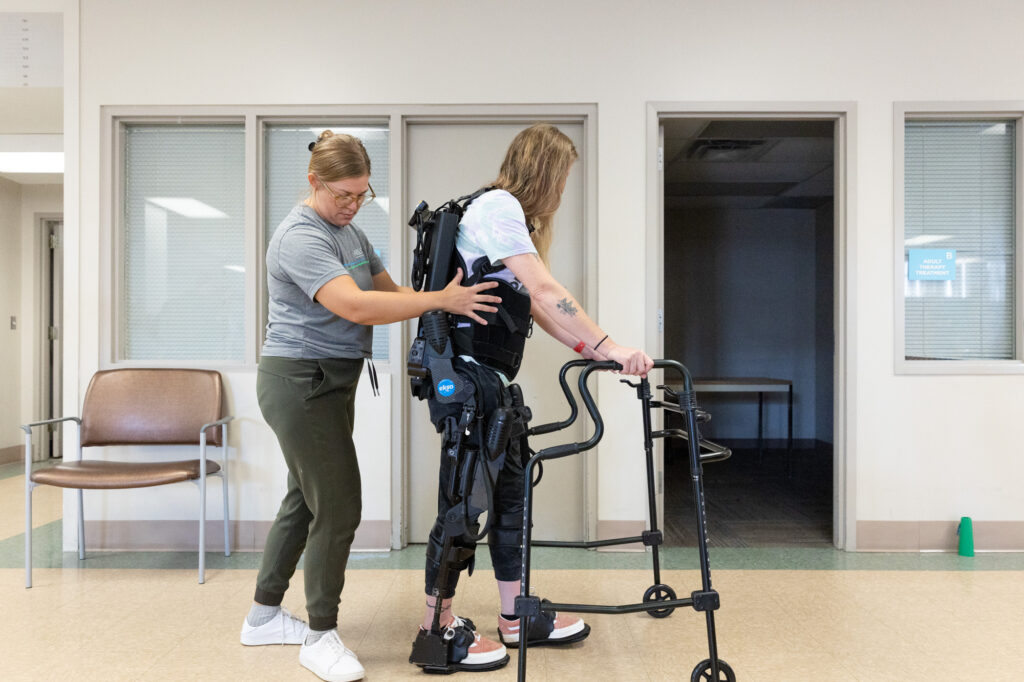
When you have been diagnosed with a serious condition or sustained a debilitating injury, it can be hard to feel empowered. You may feel as if you have lost control over your life. Services like assistive technology and specialized rehabilitation programs can help you start to regain your independence. To keep you feeling empowered, it’s important to have your voice heard as you receive treatment. This is where self-advocacy comes into the picture. Self-advocating means speaking up for yourself, but it’s also more than that. In a healthcare setting, this might mean voicing your needs and recovery goals. It can also mean letting your providers know when something isn’t working, or when you think there might be room for improvement. By advocating for yourself, you can play an active, central role in your treatment journey.
How self-advocacy empowers patients
Self-advocacy can go beyond speaking up occasionally. As a patient, self-advocacy can enable you to become an active participant in your treatment. Here are some of the ways that advocating for yourself can be empowering:
- Informed decisions — When you take an active role in your treatment, you can become better equipped to make informed decisions. Instead of passively following along, you can have more control over your recovery. This can allow you to make decisions that best reflect your goals. Not sure where to start when it comes to making healthcare-related decisions? Asking questions can be a great starting point. You can ask your provider questions about your condition and the treatments available. You can also go further and ask about the risks and benefits of different approaches. This can help you make a well-thought-out decision. Making informed decisions doesn’t just help you achieve better outcomes; it can also reduce uncertainty and anxiety. When you stay in the loop, you can take each step on your journey with confidence.
- Improved communication — Self-advocacy starts a dialogue. Treatment providers typically welcome patient feedback, as it allows them to better tailor their approach. By actively participating in conversations with your care team, you can build a trusting, transparent and collaborative relationship. Good communication comes in many forms. You may just want to clarify some doubts with your therapist, or you may want to make sure your voice is heard regarding a particular preference. Communicating well with your treatment providers can pave the way for more effective personalized care.
- Deeper confidence — A serious injury or diagnosis can affect more than your health. It can also shake your self-confidence. People managing major injuries, illnesses or disabilities often feel powerless. Self-advocacy can be a step toward regaining a sense of control and confidence. Whether you’re choosing a new treatment route or simply asking questions about the next steps, advocating for yourself can empower you to take an active role.
Why self-advocacy matters
Are you still not sure why self-advocacy is so essential to effective healthcare? Learning about the real impact of self-advocacy can help illustrate why it matters.
- Better outcomes — Self-advocacy can lead to better outcomes for many reasons. When someone is actively engaged in the treatment process, they’re more likely to feel motivated. This can help with adherence to medication, exercise routines and other self-driven aspects of treatment.
- Reduced risk of errors — Self-advocacy often involves asking clarifying questions and double-checking information given by treatment providers. This can reduce the risk of errors, as it helps avoid misunderstandings or communication breakdowns. By staying vigilant and advocating for yourself, you can avoid potential mistakes before they happen.
- More long-term engagement — For those managing a chronic illness or major injury, continuous long-term engagement is key. Treatment for these conditions can feel more like a marathon than a sprint. Continuing to self-advocate can help you stay proactive about your health over time. It can also allow for greater long-term improvement.
Ability KC values self-advocacy and offers effective, empowering care
Ability KC offers treatment for a wide array of injuries, disabilities and chronic illnesses. Whether you’re looking to manage a congenital disability or recover from a spinal cord injury, we can help. We are a designated Comprehensive Outpatient Rehabilitation Facility (CORF). This means we provide skilled rehabilitation care with the goal of empowering you. We also hold Commission on Accreditation of Rehabilitation Facilities (CARF) accreditation, meaning we excel in meeting international quality standards for care. Working with you every step of the way, we can help you achieve your wellness goals.
Contact our team today for more information about our treatment methods or to schedule an initial appointment.